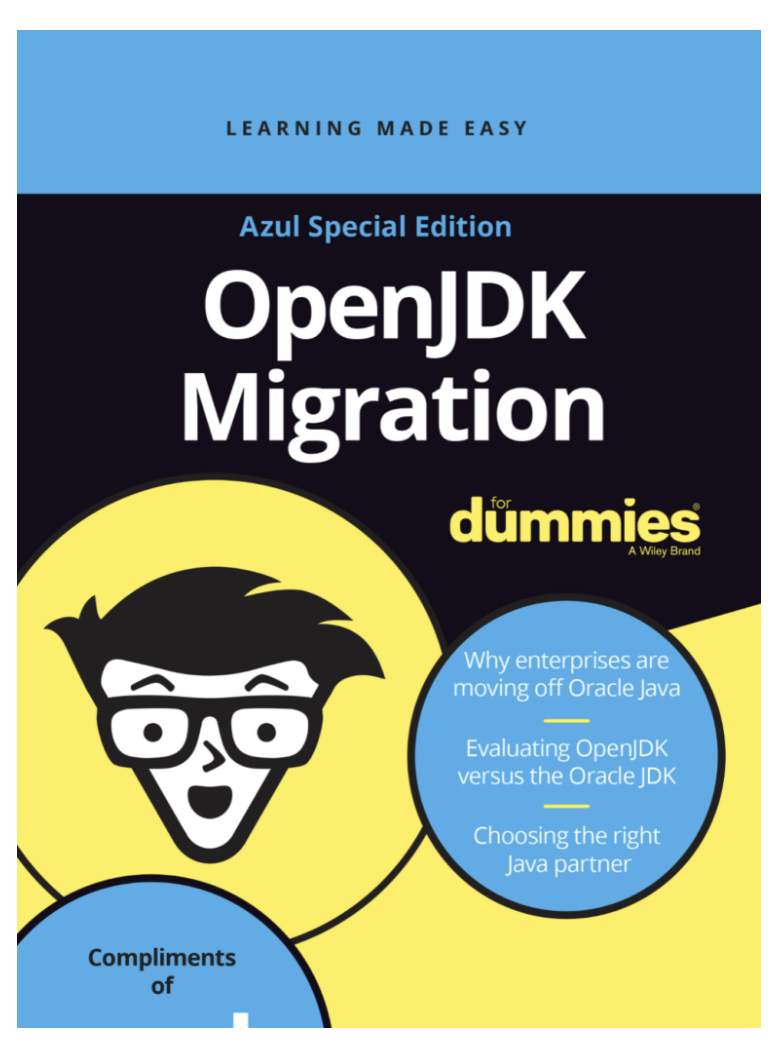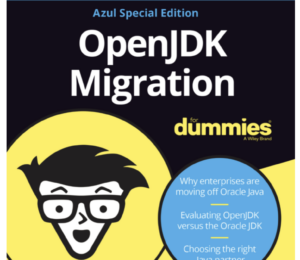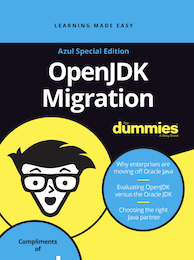Master Your Journey in the School of OpenJDK Migration
- June 30, 2024
- 4564 Unique Views
- 2 min read
Azul has led so many OpenJDK migrations, we could write a book. Like, seriously, we wrote the book. If you prefer more a more visual, immersive experience, welcome to the School of OpenJDK Migration!
The School of OpenJDK Migration is your ultimate resource for mastering OpenJDK migration. Dive into our rich collection of webinars, where OpenJDK experts divulge their secrets, from foundational knowledge to advanced tactics, derived from industry knowledge and professional experience. You’ll leave the course with a blueprint to navigate the complexities of OpenJDK migration with confidence and ease.
How difficult are most OpenJDK migrations?
For many smaller organizations with less complex infrastructures, an OpenJDK migration can be very straightforward. “In fact, migrating to certified builds of OpenJDK can be very straightforward and simple for the vast majority of enterprises,” I wrote in OpenJDK Migration for Dummies. “If you’re migrating server applications, you’re not likely to encounter any challenges.”

But as anyone with experience in big software projects knows, things rarely go as simply as teams hope they will. It’s good to know what to expect before starting a migration.
- How difficult is a migration really?
- What can teams do ahead of time to mitigate those challenges?
- What should a migration team know to migrate successfully from Oracle Java to an OpenJDK distribution?
Every migration is unique, so it’s critical to understand your goals. After you’ve identified your goals, the methodology we suggest for migrating from the Oracle Java Development Kit (JDK) can be broken down into three stages:
- Discovery. Identify which versions of Java are being used by which applications and on which machines within your organization, including cloud instances.
- inventory to create a migration plan. Execution. For each machine that requires a Java runtime, install the same version (or versions) of the OpenJDK distribution you choose.
- Validation. Test your applications to verify that everything works as expected.
Join the School of OpenJDK Migration
The school provides strategies and tactical tips from Java Champions and migration experts who have real-world experience. Try it now and get:
- Expert Guidance: Learn directly from seasoned OpenJDK migration specialists who will share their insider tips and strategies
- Comprehensive Learning: Our curriculum includes a range of topics that prepare you for real-world challenges.
- Blueprint for Success: Each session equips you with actionable insights and a clear blueprint to implement OpenJDK migration effectively and efficiently.
The School of OpenJDK Migration is totally free and self-paced. Do yourself a favor and start preparing about OpenJDK migration today.
Prime Time: The High-Performance Java Event
Join industry experts from the Java community for a free even dedicated to modernizing Java workloads. When performance, elasticity, scale, and cloud cost matter, make it Prime!
Register Now
Don’t Forget to Share This Post!







Comments (0)
No comments yet. Be the first.